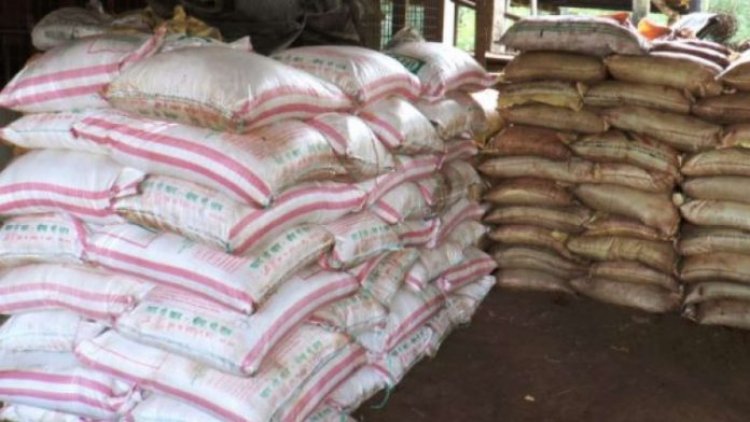Global fertilizer crisis present the worst threat to food security and agriculture gains
Possible fertilizer shortage to hit Ghana.

An impending agricultural crisis hangs in the air as a result of the global fertilizer crunch. In a press statement signed by the Chief Executive Officer (CEO) of Chambers of Agribusiness Ghana, Anthony Selorm K Morrison, fertilizer is currently in short supply, especially fertilizers of the synthetic variety, due to the soaring gas prices.
Soaring natural gas prices have forced the closure of two large UK fertilizer plants, sparking warnings of looming shortage of ammonium nitrate which could affect food supplies.
Robust demand puts the future of food production at greater risk and Ghana is not immune to this threat.
At such hikes, fertilizer manufacturers require more resources for production, and the price of natural gas at the moment is deterring them.
Yara, a leading producer of fertilizer explains that prices are rising everywhere. Be itnitrogen fertilizer, phosphate fertilizer, or potassium fertilizer.
“The cause of these increases is quite diverse, it has to do with increases in the prices of raw materials, particularly, natural gas”, That's according to the producer.
“In the US, cold weather across the south puts a massive strain on supply of natural gas, a critical component involved in the creation of two widely used synthetic fertilizers – ammonia and urea”, The statement stressed.
“Major exporting countries like China and Russia have reduced their exports whereas China has banned the export of phosphate, a major component of commercial fertilizer, through 2022”, it explained.
Russia will only permit 5.9 million metric tons (Mt) of nitrogen fertilizer and 5.35Mt of fertilizers export in the next 6 months.
Implications on Ghana’s food system
Food inflation is imminent.
As a net importer of fertilizer with no manufacturing capacity, the shortage is expected to drive up fertilizer prices, which increases a major component of farmers crop budget.
“Food prices, especially grains and cereals are expected to increase significantly from the first quarter of 2022 through to the second quarter of 2023”, it stated
Cereals and grains will see a surge between 30 and 45 per cent with a higher percentage increase in the urban areas within the same period.
Crops yield for the 2022 season is expected to remain stable or decline, relative to 2021.
However, the high cost of fertilizer will likely ration fertilizer use and or reduce area cultivated by commercial and smallholder farmers.
“Total food production, especially grains and cereals are likely to miss projected growth in the 2022 season”, it added.
It further emphasized some key recommendations such as MOFA and MOTI to urgently facilitate procurement of fertilizer and agrochemicals for the 2022 and 2023 seasons..
In addition support and promote the production and use of organic fertilizer and the expedite steps to start synthetic fertilizer production in Ghana.
Ahenkorah Odura Mary


 Abena Takyiwaa
Abena Takyiwaa 



































